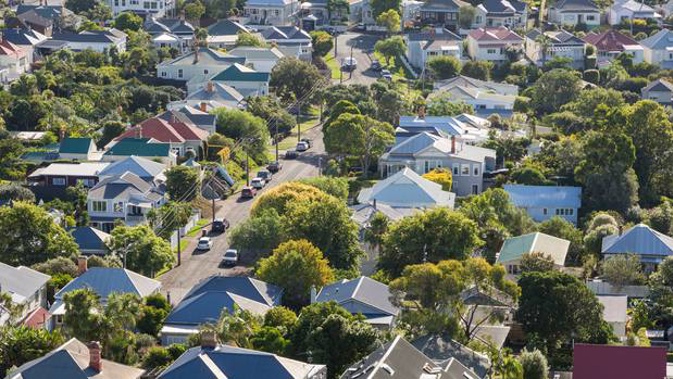
The Government will pour close to $4 billion into a scheme to accelerate the pace of new house builds, which is expected to help see "tens of thousands" of new properties built.
It is also doubling the capital gains tax-esque bright-line test from five, to ten years - meaning any gains on a residential property that is not a family home will be taxed if the property is sold within ten years of purchase.
And first home buyers have also been given a lifeline – the First Home Grant caps have been lifted from $85,000 to $95,000 for single buyers, and from $130,000 to $150,000 for two or more buyers.
The cap on the value of the house those eligible for this grant are able to buy has also been lifted by up to $100,000 in some parts of the country.
Prime Minister Jacinda Ardern said this housing package would increase the supply of houses and remove incentives for speculators.
"This is a package of both urgent and long-term measures that will increase housing supply, relieve pressure on the market and make it easier for first-home buyers," she said.
Ardern said New Zealand's housing crisis is "long standing" and today's new measures will help to start fixing this issue.
"The need for further action is clear - the last thing [we need] right now is a property bubble."
But she said without intervention, that is where New Zealand is heading.
She said the rate of house price growth in New Zealand has been "unsustainable".
"The housing crisis is a problem decades in the making that will take time to turn around, but these measures will make a difference."
Today's announcement would help to dampen property speculation. It will make residential property "less lucrative" for speculators.
The housing acceleration fund announcement will also help with supply - by helping to establish basic infrastructure, such as building pipes on vacant land.
The is the largest spend of this kind since the 1970s, Ardern said.
The plan contains a plethora of new initiatives:
• $3.8b for accelerating housing supply
• First Home Grant caps lifted, as well as higher house price caps
• Bright-line test doubled from 5 to 10 years
• Interest deductibility loopholes scrapped
• Govt to offer Kāinga Ora $2b loan to scare up land acquisition
• The Apprenticeship Boost scheme extended
The lifting of the First Home Grant caps will help more people onto the property ladder, Finance Minister Grant Robertson said.
/cloudfront-ap-southeast-2.images.arcpublishing.com/nzme/WM4QTA7NBE5CKPY6H5LUYXX7TU.jpg) Housing in Mt Victoria, looking across Te Aro to Brooklyn, Wellington. Photo / Mark Mitchell
Housing in Mt Victoria, looking across Te Aro to Brooklyn, Wellington. Photo / Mark MitchellRobertson said: "Housing bubbles are unstable".
The grant means those eligible can get $5,000 to buy an existing property, or up to $10,000 for a new property.
By increasing the income caps from $130,000 to $150,000, approximately 9,300 additional couples and 3700 additional singles who are currently renting will now newly qualify for the First Home Loan and Grant.
The Government has also announced it is upping the cap on how much a home has to cost, for someone to be eligible for the grant.
• Auckland goes from $625,000 to $700,000
• Queenstown-Lakes District goes from $600,000 to $650,000
• Wellington City, Hutt City, Upper Hutt City, Porirua City, Kāpiti Coast District goes from $550,000 to $650,000
• Nelson City, Tasman District, Tauranga City, Western Bay of Plenty District, Hamilton City, Waipā District, Hastings District, Napier City goes from $525,000 to $600,000
• Christchurch City, Selwyn District, Waimakariri District goes from $500,000 to $550,000
• Waikato District, Dunedin City goes from $425,000 to $550,000
• Rest of New Zealand goes from $400,000 to $500,000
The changes to the house price and income caps will take effect on 1 April 2021
Robertson said the bright-line test extension would help curb "rampant speculation" in the housing market.
The bright-line test is similar to a capital gains tax (CGT) on housing. It means people have to pay tax on any gains on the property if it's sold within ten years.
There are, however, a number of exceptions – such as an exemption for a family home.
The Government has announced it intends to extend the bright-line period to 10 years for residential property except for newly built houses, which will stay at five years.
The Government will pass the new bright-line test rules later today under urgency.
Robertson said that officials had advised that house prices would fall as a result of Covid-19; but he said the opposite happened.
Housing Minister Megan Woods said the new money for the housing acceleration fund – some $3.8b – will help greenlight tens of thousands of house builds in the short to medium term.
"This fund will jump-start housing developments by funding the necessary services, like roads and pipes to homes, which are currently holding up development."
Woods said it has become clear there is a "clear market failure" in New Zealand's "broken" housing market with the inaccessibility of infrastructure on vacant land.
Woods said that a lack of housing infrastructure has been a stumbling block for years.
She said the package the Government is releasing today is "unique" by bringing together land and infrastructure.
"This package will accelerate the building of new houses, in the right place."
As well as this, the Government will allow Kāinga Ora, the Crown housing agency, to borrow a further $2b for it to buy land for housing.
Meanwhile, the Government will get rid of the interest deductibility loophole – a rule which allows property owners to claim interest on loans used for residential properties as an expense against their income from those properties.
Revenue Minister David Parker said this rule favours debt-driven residential property investment over more fully taxed and more productive investments.
"To reduce investor demand for these investments, the Government will remove the advantage investors have over first home buyers."
And in a bid to get more houses built, the Government is bolstering its apprenticeship scheme, the Apprenticeship Boost initiative
The scheme is being extended by four months to further support trades and trades training.
It means employers who have apprentices starting over those extra four months can get some Apprenticeship Boost support as well, which could see more than 5,000 new apprentices able to benefit.
Auckland Mayor Phil Goff has welcomed the Government's housing package as a "good step in the right direction".
"In particular, I welcome the Government's commitment of $3.8 billion to build infrastructure and accelerate home building," he said.
"The cost of infrastructure rather than availability of land is the major constraint Auckland faces in increasing home building. A fair share of this fund for Auckland will help ensure the infrastructure such as roading, water and public open space is in place to enable building to go ahead."
Goff said the measures would help first-home buyers but he warned it would take time before the benefits were realised.
Take your Radio, Podcasts and Music with you









